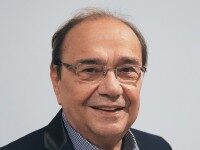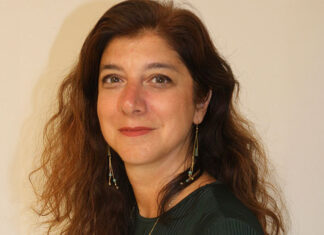By Taleen Babayan
Mirror-Spectator Staff
NEW YORK — Over the course of two days, Rakel Dink, the widow of
Hrant Dink, was toasted and feted here for her struggle to continue her
husband’s legacy.
More than 50 people gathered for a dinner in honor of Dink at Kavookjian
Hall in St. Vartan Cathedral on Thursday, April 4, organized by the
Tekeyan Cultural Association (TCA), Essayan-Getronagan, Tibrevank,
Armenian General Benevolent Union (AGBU), Constantinople Armenian
Relief Society (CARS) and the Diocese of the Armenian Church of America,
under the Auspices of Archbishop Khajag Barsamian.
Because Dink was in New York to receive an award at Fordham University,
these organizations took advantage of the opportunity and arranged an informal
dinner with Dink to honor her late husband’s memory. Fr. Haigazoun
Najarian, Diocesan vicar general, gave the opening prayer. Several speakers followed.
Archbishop Vicken Aykazian, legate and ecumenical officer of the Diocese of the Armenian Church of America (Eastern), said he last saw Dink in Washington, DC when he had come to meet those involved with Armenian issues in the nation’s capital.
Hagop Vartivarian spoke on behalf of the TCA. Vartivarian traveled to Istanbul last year and encouraged those in attendance to go as well because Armenians have a significant cultural center there.







